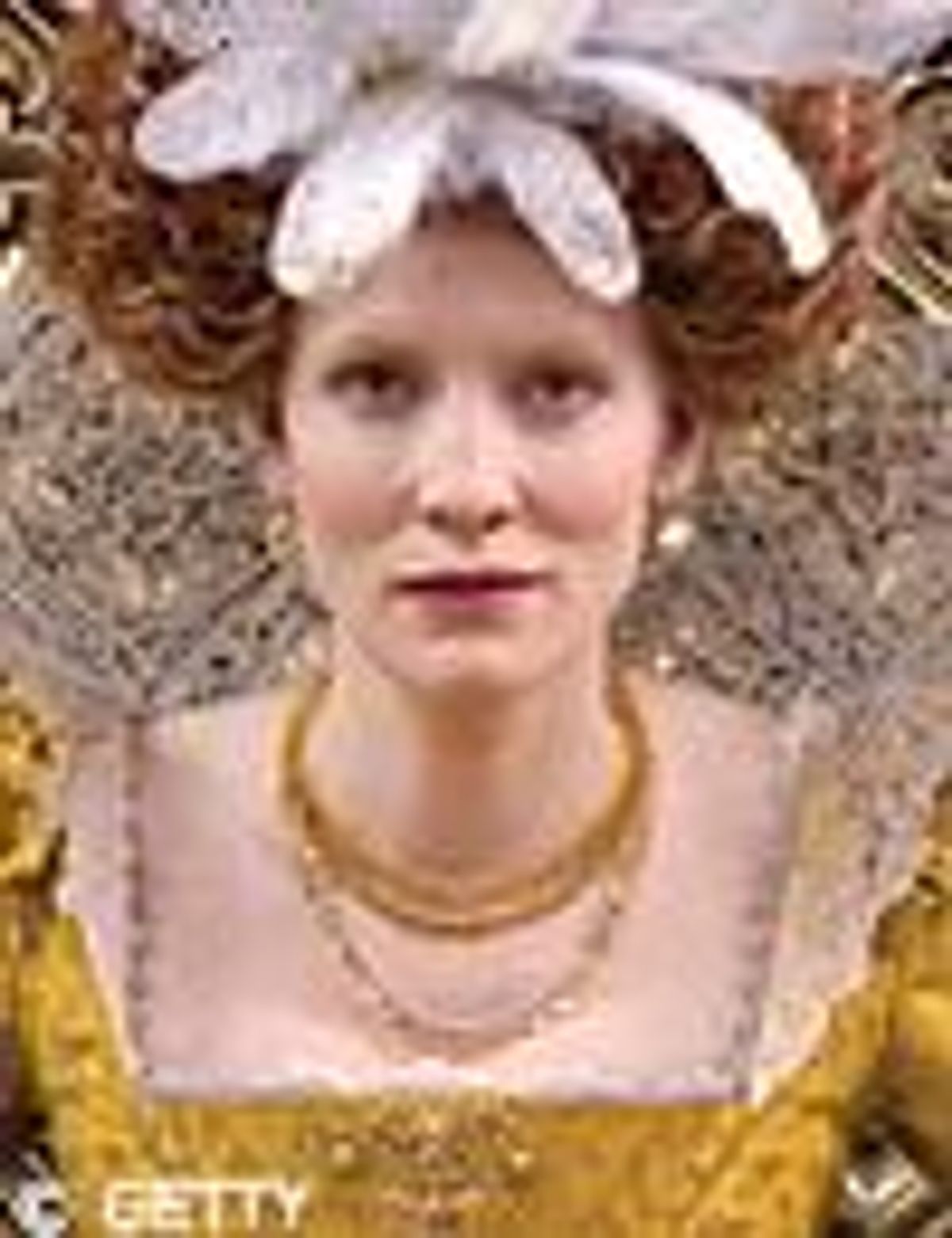If there is one mission, one important stand that gay people
the world over embrace with passion burning bright in
their eyes, it's this: Cate Blanchett's 1999
Oscar loss to Gwyneth Paltrow mustbe avenged.
Now Blanchett finally has her shot, as she is reprising her
runner-up role in Elizabeth: The Golden Age, which reunites the
actress with the original's director, Shekhar Kapur. The first Elizabethwas nominated for Best
Picture, and with all the principals reassembled
and a tasty chunk of history to plunder
(Blanchett's Elizabeth I weathering assassination
attempts andromance), some might
expect Oscar nominations -- and wins -- to follow.
It is my duty as film critic to suggest that you
adjust your expectations.
Elizabeth: The Golden Agewill certainly rack up
its fair share of craft nominations (costume designer
Alexandra Byrne should start planning her speech
now), and Blanchett may be nominated still, but
the film is an over-the-top mess, crammed to the gills
like one of Elizabeth's overconstructed
hairpieces and just as prone to wild tilting. This
is not to say the film is unwatchable, though staid
critics and Oscar mavens will react in horror.
Rather, the film is one of the most campy
spectacles this year -- it's the Live Free or Die Hardof British costume dramas.
Blanchett may have aced the first film with her subtle
transition from girl to woman, but the sequel finds
her delivering a Bette Davis performance that at least
suggests she is in on the movie's joke. And
it's a wild joke indeed, with moments that are so
absurd, you can't help but laugh. Whether
it's a white horse completing a slo-mo jump from an
exploding galleon or a slap-happy Elizabeth launching
herself at a handmaiden (as Geoffrey Rush lurches out
of the shadows hissing "Dignity!"), Kapur seems to
have crafted each scene to be as bizarre as possible.
One sequence finds Elizabeth chuckling as
ever-more-ridiculous attractions (acrobats, exotic
animals) are wheeled into a formal party -- it's
the film in a nutshell.
Clive Owen joins the sequel as Sir Walter Raleigh, an
explorer who flirts with conquering the most
impossible territory of all -- Elizabeth's
virginity. I never thought I could say this of Owen, but
Kapur paints him as such a Harlequin novel love
interest that he could be replaced by Fabio with no
ill effects. Worse is Abbie Cornish as Elizabeth's
most trusted handmaiden -- she's so bland that
when Raleigh tells the besotted girl, "Forget
me," she'sthe one who's
slipped from your mind. Amid all this, only the
ever-fierce Blanchett escapes alive. She'll
still be a gay icon, but she can now add a camp
contingent. The first film may have been
Blanchett's coming-out party, but Elizabeth: The Golden Ageis more like herVirgin Dearest.

















































































